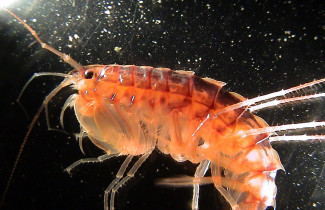The doctoral dissertation in the field of Biology will be examined at the the Faculty of Science, Forestry and Technology, Joensuu Campus.
What is the topic of your doctoral research? Why is it important to study the topic?
My topic is reproduction biology and environmental threats for freshwater mussels. My thesis provides novel basic information on the reproduction of freshwater mussels and offers answers to questions on their reproductive strategies. Furthermore, my thesis investigates the potential impacts of environmental threats such as warming and nano-plastics, a timely pollution hazard. The topic is very relevant, because mussels have declined worldwide and the lack of information on their reproductive biology might impede their conservation and management plans. In general, my research will diminish the gap in our knowledge on the reproductive biology of this globally ecologically and economically important taxa. Moreover, the results reflect the tolerance of freshwater mussels against environmental warming and plastic pollution and provide information to estimate how the mussels can perform under changing environment.
What are the key findings or observations of your doctoral research?
My thesis reveals major differences in the reproductive traits between the two freshwater mussels, the duck mussel Anodonta anatina and the swollen river mussel Unio tumidus. The results also indicate that SERCA activity in adductor muscles and the muscular foot likely controls the behaviours of valve gaping and burrowing in both species. In addition, my thesis shows that parasite infections have negative impact on the gonads and reproduction of A. anatina. Furthermore, my results revealed the acute toxicity of nano-plastics debris (NPDs) on mussels, which increased when combined with other organic chemicals such as Benzo[α]pyrene. Moreover, the results highlight the general importance of understanding the combined effects of chemicals for environmental risk assessment.
How can the results of your doctoral research be utilised in practice?
Overall, my thesis provides novel quantitative information on the reproductive biology of the freshwater mussels. This information might be useful for conservation and management plans for the mussels. With the increase of plastics use in our lives, plastics pollution with climate warming will affect the general performance level of mussels and their abundance. My results provide the basis for future research on the possible impacts of warming and plastic pollution as environmental threats through new methodologies that were tested for the first time on freshwater mussels.
What are the key research methods and materials used in your doctoral research?
My thesis conducted on two common Finnish freshwater mussels, Anodonta anatina and Unio tumidus which were collected from lake Viinijärvi, Finland. My thesis consisted of four studies. To monitor the seasonal patterns of reproductive biology, parasitism, and growth, I studied both species through histological and microscopical investigations, with the focus on the gonads and gills (Studies I and II). Also, I experimentally studied the possible effects of warming temperature on valve gaping and burrowing behaviours, by determining the SERCA activity in adductor muscles and foot that controls these behaviours (Study III). Furthermore, I studied the potential toxicity of nano-plastic debris, a timely pollution hazard, separately and in combination with benzo(α)pyrene, on thermally acclimated Anodonta anatina by histological investigations of gills and digestive gland, and by determination of the biochemical biomarkers and the bio-distribution of toxins in different tissues (Study IV).
The doctoral dissertation of Olfat Abdelsaleheen, MSc, entitled Reproduction biology and environmental threats for freshwater mussels (Bivalvia: Unionidae) will be examined at the Faculty of Science, Forestry and Technology, Joensuu Campus. The opponent will be Professor Leena Lindström, University of Jyväskylä, and the custos will be Professor Raine Kortet, University of Eastern Finland. The language of the public examination is English.
For more information, please contact:
Olfat Abdelsaleheen, [email protected], tel. +358 41 756 0912






